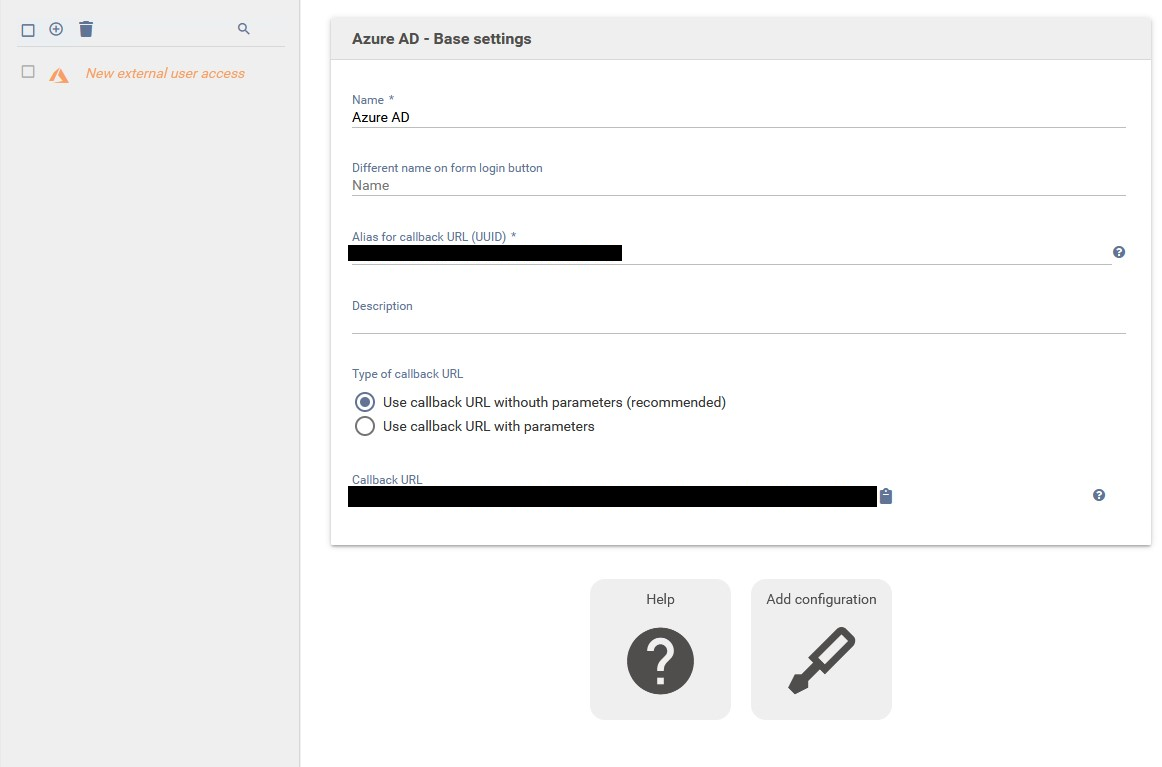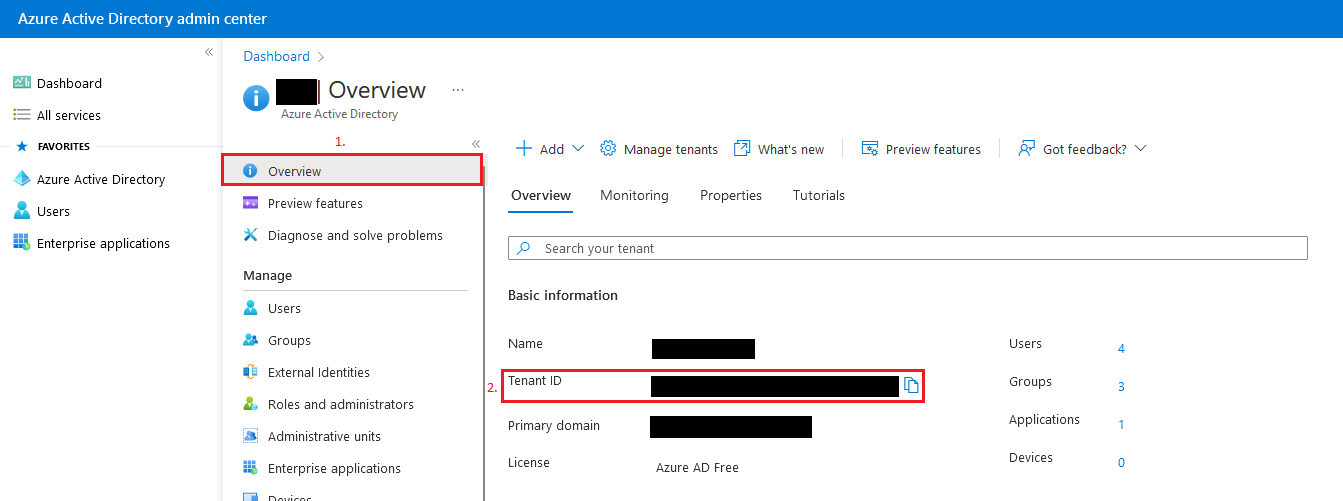Azure AD
7.1.0+ This feature is available starting with Xima® Formcycle version 7.1.
When adding a Azure AD identity provider the following parameters are requested:
Base settings
Name
Name of the identity provider in Xima® Formcycle.
Different name on form login button
If a form has been configured to offer several authentication options, a dialog will be displayed when opening the form in which an authentication type has to be selected. The text used on the button for this identity provider can be configured here.
If nothing is entered here, the name entered under Name is used.
Alias for callback URL (UUID)
Unique identifier which is used when the identity provider returns to Xima® Formcycle. This value is generated automatically, but can be changed if necessary.
Callback URL
The URL which is used when returning from the identity provider to Xima® Formcycle is shown here and can be copied to the clipboard by clicking the copy icon to the right of the URL.
Initially visible buttons
Below the base settings there are initially 2 buttons whose functions are intended to help with the configuration of the Azure AD identity provider.
Help
Opens this help page in the browser.
Add configuration
If the required information has been provided by the identity provider, the area for the configuration of the identity provider can be opened by clicking on this button. Afterwards the area configuration which is described below opens.
Configuration
Client ID
Unique ID of the configuration that is provided by the identity provider. After creating a new app registration (see points 1 and 2), it can be copied from the list of registrations (point 3).
Client secret
Secret key which is used to authenticate your client. After creating a new client key within Azure (see points 1 and 2), this key is temporarily displayed (point 3). It is not possible to retrieve this key at a later time, so it must be created again if it is lost.
Directory (tenant) ID
Unique ID of the directory (tenant) which is used to query the group information and the manager. You can find this in the overview of your Azure tenant (see point 2).
Query full group information
Specifies if the Azure user groups of the user should be determined via Graph API after a successful login. This data is available via user placeholder at rawData.memberOf.
Query manager
Specifies whether the user's manager should be determined via Graph API after a successful login. This data is available via user placeholder at rawData.manager.





